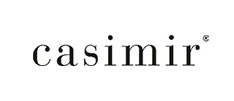Better safe than sorry.
Cosmetic products must be produced in accordance with "Cosmetic GMP" (Cosmetic - Good Manufacturing Practices). This is to ensure a flawless, reproducible quality of the product. Each raw material used, as well as the final product, must comply with a defined specification. The documentation of these requirements are also an essential part of the cosmetic safety report, as well as the product information file. Additional quality control is essential, especially for products with a short remaining shelf life. Great by Date therefore tests each product according to its own strict quality criteria: You will only receive as-new products from us.
Best before date and PAO on cosmetics.
For beauty products with a minimum shelf life of less than 30 months, the indication of the best before date is mandatory. The best before date is not an expiration date, it determines the point in time until which the manufacturer guarantees that the skin care product will have its original condition and function when stored correctly. As a rule, the beauty product can be used without risk even after expiration. For cosmetic products with a minimum shelf life of more than 30 months, the best before note is not required; instead, the PAO (Period after Opening), the period of use after opening, must be indicated. Pro tip: Note the opening date on the package! The PAO does not have to be indicated by the manufacturer if the shelf life after opening is not relevant because the skin care is consumed immediately and completely, such as individually packaged face mask products.
Ban on destruction
Destruction bans for as-new goods are included as a fixed part of the ecodesign regulation. Useful links: eur-lex.europa.eu commission.europa.eu
Many products are destroyed as new.
While the destruction of returned goods from online retailing is now making big waves in the media, the number of unreported cases of products that can no longer be marketed due to their short shelf life, is even higher. These goods do not appear in statistics, but “disappear” from companies just as unnoticed as they were produced. Although it is very difficult to obtain official information on this, the proportion of products destroyed can be conservatively estimated at between 10 and 20 percent.
What do
consumers say?
Great by Date carried out a market research among around 1000 people in Austria to find out what is particularly important to consumers. Did you know that the unawareness about the destruction practice is very high? Almost 80% of the respondents were not aware of it. Or did you know that consumers consider the quality of the products and their testing more important than the low price? If you are a manufacturer of wellbeing products and would like to know more about how sustainable consumers think, please drop us a message at partner@greatbydate.com.
Quality Control
methods and parameters.
In order to check the quality of a product, it is necessary to check the end product for certain parameters. These are defined in the course of the product development. During the inspection, the final product must meet the requirements of each test parameter within a given framework (specification). If this is not the case, the product cannot be placed on the market. The scope and performance of the individual tests is the responsibility of the manufacturer. Typical test parameters include: chemical-physical, microbiological & sensory testing of the finished product.
Shelf life of food
supplements.
Nutritional and food supplements are legally considered to be foodstuffs and must therefore be provided with a best-before date. It is important to know that until this date the unopened product retains the content of vitamins, nutrients and minerals or trace elements and other herbal ingredients when stored properly. The manufacturer ensures through its own control systems that the declared amount of ingredients still match at the end of the best before date within the permitted deviations. Until the expiry date is reached, the manufacturer is responsible for ensuring that the product is safe and the supplement may be sold without hesitation.
Agenda 2030 – UNO
Agenda 2030 is a comprehensive global action plan adopted by the United Nations (UN) in September 2015. The 2030 Agenda consists of 17 Sustainable Development Goals (SDGs) that address all countries and populations and pursue a vision of a sustainable future for all the world's people. Further information: https://sdgs.un.org https://sdgs.un.org
Counterfeit
In this day and age when it is so easy to buy products online, it can be difficult to distinguish counterfeits from genuine products. The problem of counterfeits is particularly prevalent in the area of cosmetics and dietary supplements. But what do these counterfeits mean for our health, and what can we do to make sure we're getting what we pay for? More links on this topic here: https://www.eccireland.ie https://skinfo.com https://money.com
Circular Economy
The circular economy is a concept that aims to sustainably use natural resources and minimize waste and emissions. It involves minimizing waste and conserving resources by constantly reusing materials and products in a closed system. Further information on this topic: https://www.umweltbundesamt.at https://www.circle-economy.com/ https://www.bmk.gv.at
ESG Targets
ESG stands for "Environmental, Social and Governance" and refers to three key areas that are important for the long-term sustainability and performance of companies and investments. The ESG goals include: 1. environmental goals (Environmental): This refers to the impact of companies on the environment, such as emissions, waste and resource use. 2. social goals (Social): This refers to companies' relationships with their stakeholders, including their employees, customers, suppliers and communities. 3. governance goals (Governance): This refers to the internal organization and monitoring of companies, including issues of corporate governance, transparency and responsibility. The aim of ESG goals is to achieve long-term sustainable returns by investing in companies that operate responsibly and are committed to socially and environmentally friendly practices. Investing in ESG-friendly companies can lead to better long-term financial results while making a positive contribution to society and the environment.

























